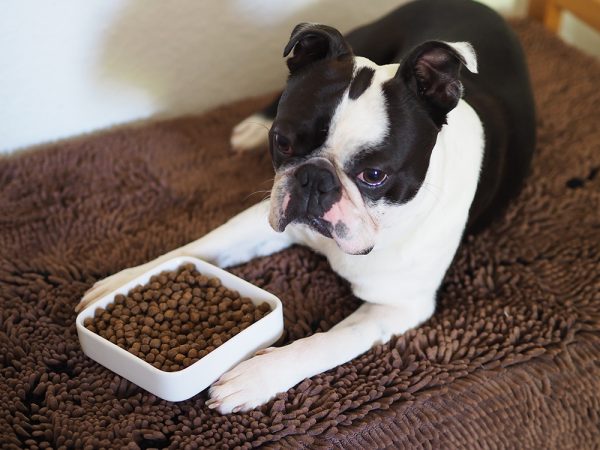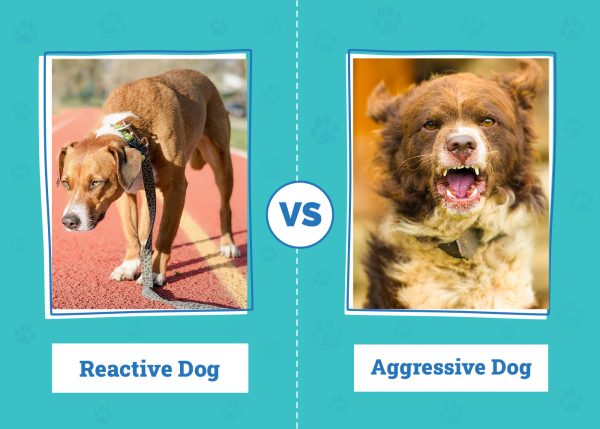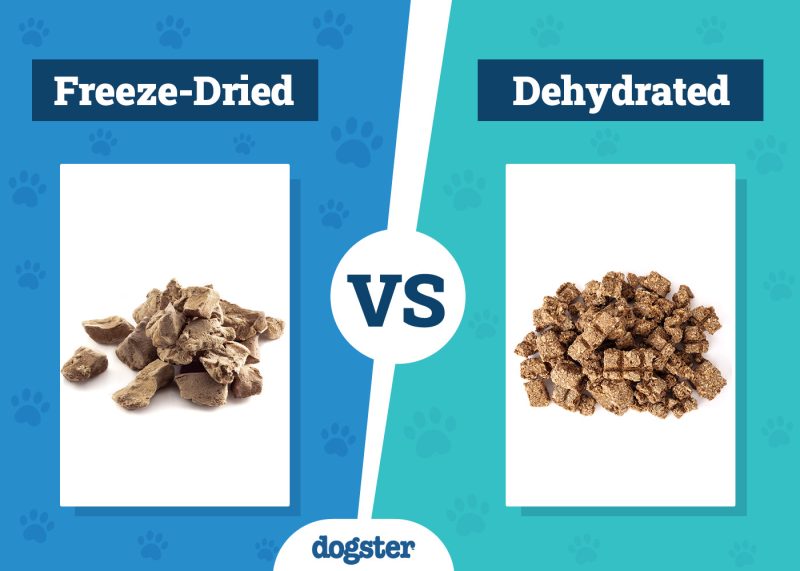In this article
Around the holidays, you may see a lot of information on dogs getting pancreatitis. Can your dog recover from pancreatitis, and how long will it take? Before we answer that question, we will first discuss some other pertinent information—like what pancreatitis is, how it’s diagnosed, and how long it may take your dog to recover. Generally, if your dog can be treated, it typically takes a minimum of 1 to 2 weeks to fully recover, while other dogs will develop lifelong, chronic pancreatitis.

What Is the Pancreas?
The pancreas is an organ in the abdominal cavity of dogs that is near the stomach and intestines. The pancreas is involved in regulating blood sugar by releasing insulin. Insulin helps to control the level of sugar in the bloodstream, and also prevent either too high of blood sugar (hyperglycemia), or dangerously low levels of blood sugar (hypoglycemia).
The other main role of the pancreas is to help in digestion and food breakdown by the release of digestive enzymes. These enzymes are released by the pancreas and go through a small duct into the small intestine. Once in the small intestine, these enzymes help to break up carbohydrates and fats into small pieces so that the bloodstream can take and use them.
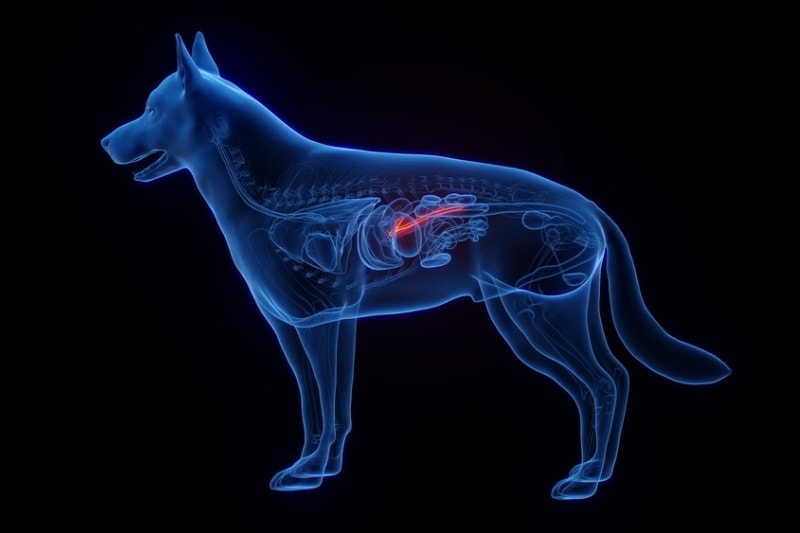
What Is Pancreatitis?
Pancreatitis literally means “inflammation of the pancreas”. This will occur when the digestive enzymes, normally released into the small intestine, don’t travel the appropriate route. Instead of digesting food, the enzymes will first cause inflammation of the pancreas and eventually start to digest the pancreas itself. Once this process occurs, it will cause more inflammation of the pancreas, starting a snowball effect of abnormalities.

How Will I Know if My Dog Has Pancreatitis?
Because the digestive enzymes and potentially insulin are affected, it’s not surprising that pancreatitis will cause gastrointestinal (GI) upset. Classic signs of pancreatitis are vomiting, nausea, anorexia, abdominal pain, and diarrhea. Some dogs will only have mild symptoms and still want to eat and drink. However, every time they do, they may vomit and/or have diarrhea.
Other dogs may be severely affected and be unable to keep any food or water down, not want to eat or drink, and may even start to have effects on the liver. Because the pancreas is involved in regulating blood sugar, your dog may suffer from abnormally high or low blood sugar levels. This, in combination with anorexia and vomiting, may compound treatment.

Unfortunately, an “upset stomach” can be caused by a number of things aside from pancreatitis. Some dogs will get pancreatitis as the primary cause of their illness. Other dogs will get what’s referred to as secondary pancreatitis. This means that there is a primary cause of their illness, and the pancreas is affected secondary to that illness. For example, a dog who swallows their toy or a bone that becomes stuck in their intestinal tract—referred to as a GI foreign body. The presence of the foreign body may be the catalyst for the pancreatitis. Other things that can cause pancreatitis to be secondary include diabetes mellitus, kidney disease, cancer, and toxin ingestion.
How Will My Veterinarian Diagnose Pancreatitis?
Likely, your veterinarian will recommend X-rays and bloodwork if your dog has vomiting or diarrhea. This is to ensure that there is not an obvious tumor or intestinal foreign body causing the abnormalities. There are blood tests to help determine if your dog has pancreatitis as well. Depending on if your veterinarian sends the bloodwork to a lab or performs it in-house will determine what blood test they do. Keep in mind that your vet still has to make sure that the pancreatitis is not secondary or caused by another condition, as discussed above.
An abdominal ultrasound can also be used to diagnose pancreatitis. This is a great diagnostic tool to both look at the pancreas and the rest of the abdominal organs to help diagnose any other issues.
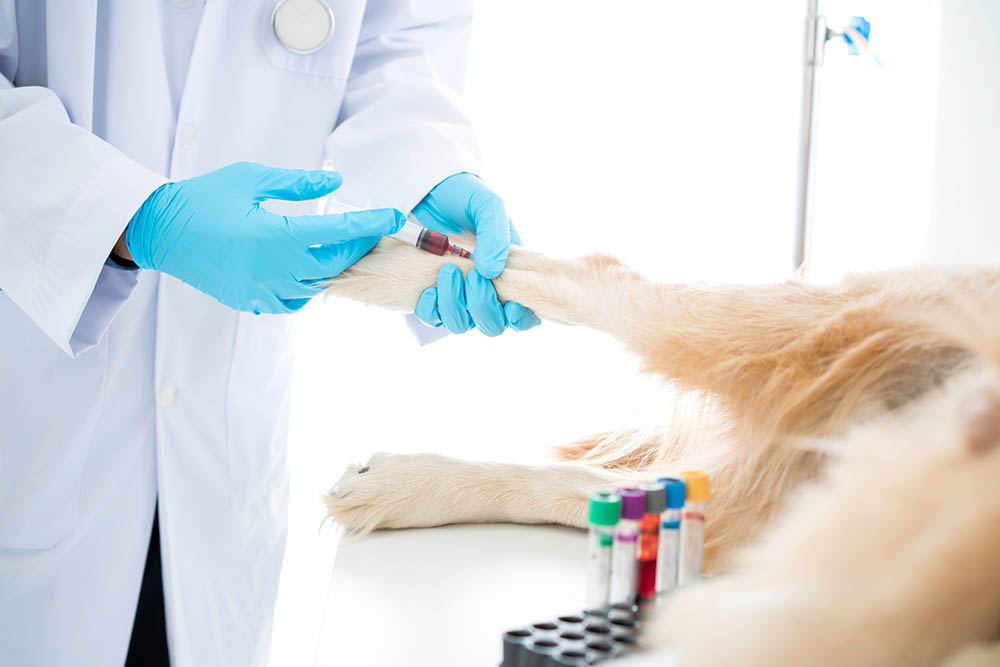

Can My Dog Recover if They Are Diagnosed with Pancreatitis?
Yes! Many dogs will recover from mild and moderate cases of pancreatitis. Some dogs will still want to eat and drink. They may just have mild signs of nausea, diarrhea, and/or abdominal pain. In these mild cases, if there are no other problems, your veterinarian may be able to treat your dog as an outpatient. They may receive injections in the hospital and then go home with special food and medications to help get them through the episode.

In some cases, dogs will be severely affected. These are dogs who are severely dehydrated, don’t want to eat and/or drink, and may even have effects on their liver from the inflamed pancreas. If your dog is severely affected and also has other diseases, such as kidney problems, diabetes, etc., your veterinarian may need to hospitalize your dog. Some dogs have such severe cases of pancreatitis that feeding tubes need to be used while the dog is hospitalized for prolonged periods of time.
Unfortunately, some dogs will die from severe pancreatitis, especially if they have other diseases at the same time. Some studies have a mortality rate of 27%–58% of dogs with pancreatitis. However, these numbers may be falsely elevated, as they are from referral hospitals, such as veterinary school teaching hospitals, that tend to see the worst of the worst. It’s important to keep these numbers in mind if your dog has been diagnosed with pancreatitis—you should continue to be diligent about care and monitoring and always seek veterinary care if your dog is not getting better.
If you need to speak with a vet but can't get to one, head over to PangoVet. It's our online service where you can talk to a vet online and get the advice you need for your pet — all at an affordable price!

How Long Will It Take My Dog to Recover From Pancreatitis?
If your dog is treated as an outpatient and only has mild pancreatitis, it will typically take 1–2 weeks for your dog to be back to their normal self. Mild cases are often treated with at-home medications and diet changes. The diet should be continued as instructed by your veterinarian. Typically, a few days pass when they are acting normal, and then weaning your dog back to their regular diet.
If your dog is severely affected, they may need to be hospitalized on aggressive care for days, up to a week or two. This will depend on if other organ systems have been affected, if they have a feeding tube, and if you are comfortable managing a feeding tube at home. Once your dog is home after a prolonged hospitalization period, they may still take an additional 1–2 weeks to be back to normal.
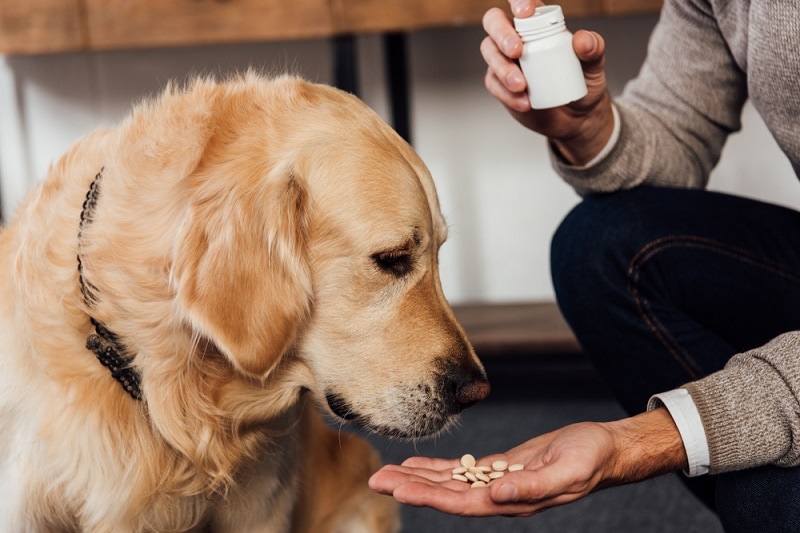
Some dogs may recover from an acute episode but then have chronic pancreatitis for the rest of their life. Your veterinarian will help you manage chronic cases by putting them on special diets and potentially keeping them on long-term medications, such as probiotics and/or anti-inflammatories. Each chronic case is different, and treatment is determined by other diseases your dog may also have. In these cases, your dog doesn’t ever fully recover. They may not be acutely ill but may have pancreatitis as a lifelong condition.

How Can I Prevent Pancreatitis in My Dog?
The biggest thing you can do for your dog is to not allow them access to high-fat foods and highly oiled foods. Especially around the holidays, we love to spoil our dogs with handouts of whatever we are eating. Unfortunately, these high-fat and oily foods can sometimes upset your dog’s GI tract. Especially if your dog has diabetes, kidney disease, or liver disease, they may be more sensitive to these diet changes.
Raw foods and raw bones can also affect your dog’s GI tract. Feeding your dog foods that are difficult to digest and high in bacterial count may trigger a pancreatic response.
One of the best preventions for pancreatitis is regular veterinary visits with annual bloodwork to monitor any changes in indicating kidney, liver, diabetic, or endocrine diseases. This, in combination with feeding high-quality veterinary-preferred foods and treats, are going to be your best prevention. Address any issues you notice with your veterinarian early on, not allowing your dog to be sick for days or weeks before getting care.
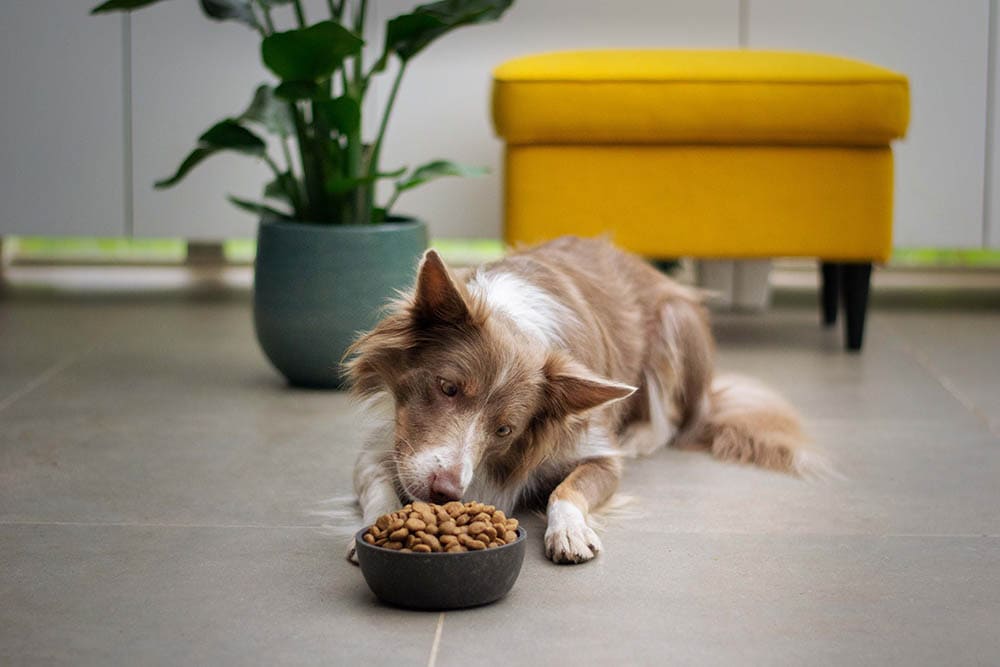

Summing Up
Pancreatitis is a fairly common condition in dogs and can range from mild to severe. Whether your dog has other diseases, and how sick they are from the pancreatitis, will determine if they can recover. Unfortunately, the mortality rate for dogs with pancreatitis is fairly high. If your dog can be treated, it typically takes a minimum of 1 to 2 weeks to fully recover, while other dogs will develop lifelong, chronic pancreatitis.
Monitoring and controlling your dog’s access to human foods and treats may also help to prevent pancreatitis and improve their recovery time if they do get sick. Always seek veterinary advice and treatment before going forward with any at-home therapies.
See Also:
- Pancreatic Cancer in Dogs – Signs, Symptoms & Care
- Is Slippery Elm Good for Dogs with Pancreatitis? Our Vet Explains
Featured Image Credit: Christin Lola, Shutterstock






